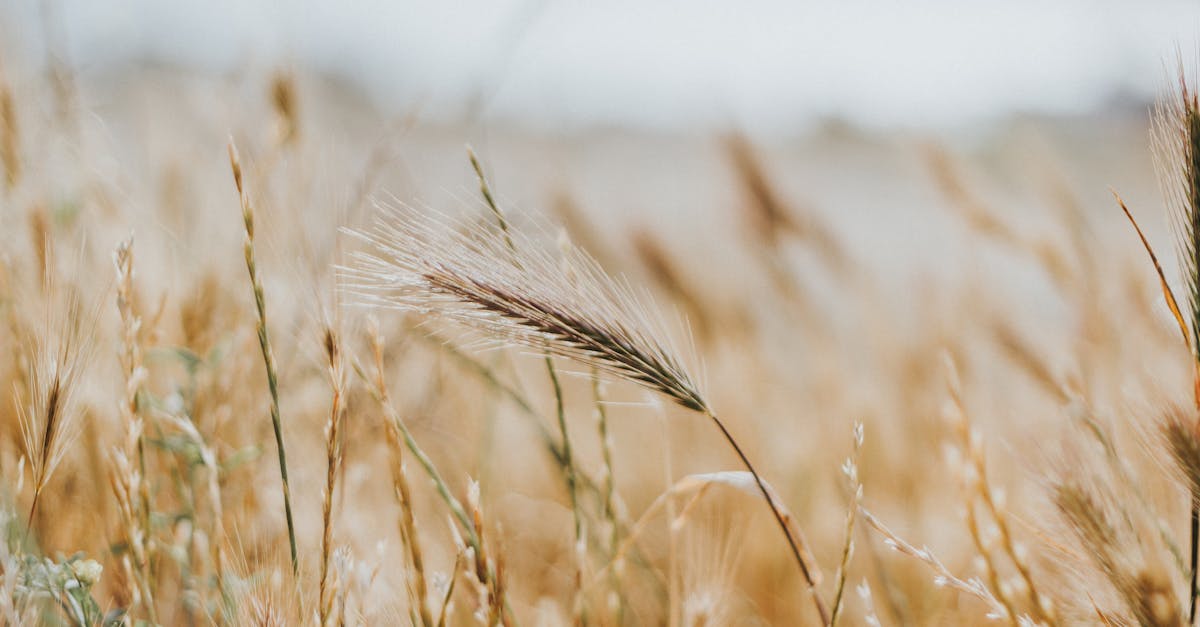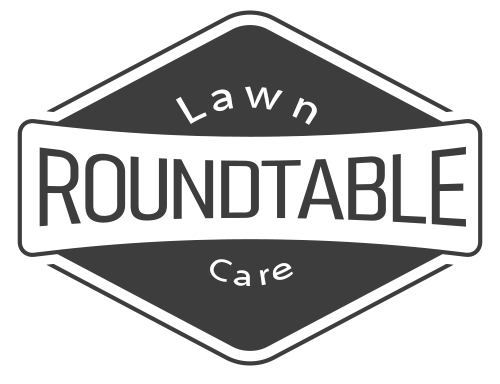A Comprehensive Guide to Choosing and Maintaining Georgia’s Top-Rated Grass Seed

Georgia, with its vibrant and diverse landscapes, offers a unique opportunity to cultivate a thriving and lush lawn. But finding the right grass seed for your Georgia yard can be a daunting task, given the array of choices available. This detailed guide will navigate you through the world of Georgia’s top-rated grass seeds, empowering you to make informed decisions and transform your yard into a thriving outdoor oasis. As we dive into the specifics, you’ll discover the best grass seed varieties, explore pre-mixed blends, and uncover the secrets to successful grass seed establishment and maintenance. With these insights, you’ll be well-equipped to choose and maintain the perfect grass seed for your Georgia lawn.
Key Insights for a Thriving Georgia Lawn
5 Key Points:
- Georgia’s warm climate favors warm-season grasses like Bermuda, zoysia, and centipede grass, while fescues and ryegrasses perform well in shady areas.
- Consider sun exposure, soil type, and desired maintenance level when selecting the right grass seed blend for your yard.
- For successful grass seed establishment, prepare the soil properly, plant the seeds at the recommended depth, water regularly, and fertilize as needed.
- Maintain a healthy Georgia lawn by mowing, watering, fertilizing, and controlling weeds and pests regularly.
- Utilize local resources such as plant nurseries, gardening clubs, and online forums for additional support and information on gardening in Georgia.
1. Unveiling the Best Grass Seed Cultivars for Georgia’s Landscapes
Unveiling the Best Grass Seed Cultivars for Georgia’s Landscapes: Explore the varieties of grass seed that thrive in Georgia’s climate, from shade-tolerant to drought-resistant options.
Georgia’s diverse climate and soil conditions demand careful consideration when selecting the right grass seed for your lawn. Warm-season grasses, such as Bermuda, zoysia, and centipede grass, thrive in the state’s hot, humid summers. These grasses enter dormancy during the cooler months, turning brown but remaining alive and ready to green up again come spring.
For shady areas, fescues and fine-leafed ryegrasses perform well. Tall fescues, known for their durability and heat tolerance, can withstand Georgia’s intense sunlight while maintaining a lush appearance. Fine-leafed ryegrasses, with their rapid growth and adaptability, provide a dense, emerald green lawn that can withstand moderate shade.
2. Selecting the Right Grass Seed for Your Yard’s Specific Needs
Selecting the Right Grass Seed for Your Yard’s Specific Needs: Consider factors such as sun exposure, soil type, and desired level of maintenance to choose the optimal grass seed blend for your yard.
Once you’ve familiarized yourself with the different grass seed cultivars available in Georgia, it’s time to select the optimal blend for your yard’s unique requirements. Consider the following factors:
- Sun exposure: Georgia’s abundant sunshine favors warm-season grasses like Bermuda, zoysia, and centipede grass. For shady areas, opt for tall fescues or fine-leafed ryegrasses, which can tolerate lower light levels.
- Soil type: Well-drained, loamy soil is ideal for most grass varieties. If your soil is heavy clay or sandy, you may need to amend it to improve drainage or fertility.
- Desired level of maintenance: Some grass varieties, like Bermuda grass, require more frequent mowing and watering. Others, such as zoysia grass, are known for their low-maintenance characteristics.
By carefully considering these factors, you can choose the grass seed blend that best suits your yard’s needs and lifestyle.
3. Recommended Grass Seed Blends for Georgia
Recommended Grass Seed Blends for Georgia: Discover pre-mixed grass seed blends designed specifically for Georgia’s climate and soil conditions, offering tailored solutions for various yard requirements
Pre-mixed grass seed blends offer a convenient solution for Georgia homeowners looking to establish a lush, healthy lawn. These blends are carefully formulated to include complementary grass varieties that thrive in the state’s unique climate and soil conditions. Here are a few recommended blends:
- Georgia 4-Way Blend: This blend combines four top-rated warm-season grasses – Bermuda grass, zoysia grass, centipede grass, and tall fescue – to create a diverse and resilient lawn that can withstand Georgia’s heat, humidity, and drought conditions.
- Georgia Fescue Blend: For shady areas, this blend includes a mix of tall fescues and fine-leafed ryegrasses, providing a dense, emerald green lawn that can tolerate lower light levels.
- Georgia Low-Maintenance Blend: This blend features low-maintenance grasses like zoysia grass and tall fescues, making it an ideal choice for busy homeowners or those seeking a water-efficient lawn.
When choosing a pre-mixed grass seed blend, consider your yard’s specific sun exposure, soil type, and desired level of maintenance. With the right blend, you can achieve a beautiful and thriving lawn that meets your needs and enhances your outdoor space.
4. Tips for Successful Grass Seed Establishment
Tips for Successful Grass Seed Establishment: Learn best practices for preparing your soil, planting the seeds, and ensuring proper watering and fertilization for optimal grass growth
Establishing a new lawn from grass seed requires careful preparation and proper techniques. Here are some tips to ensure successful grass seed establishment:
- Prepare your soil: Before planting, it’s crucial to prepare your soil to provide an optimal environment for seed germination and growth. This includes removing weeds, tilling the soil, and amending it with organic matter like compost or peat moss to improve drainage and fertility.
- Plant the seeds: Spread the grass seed evenly over the prepared soil, following the recommended seeding rate on the seed packaging. Lightly rake the seeds into the soil to ensure good seed-to-soil contact, but avoid burying them too deeply.
- Water regularly: Keep the soil moist, but not waterlogged, during the germination and establishment period. Water deeply and less frequently to encourage strong root development.
- Fertilize: Once the grass seedlings have emerged and established, fertilize them according to the manufacturer’s instructions. Use a balanced fertilizer that provides essential nutrients for healthy grass growth.
5. Maintaining a Healthy Georgia Lawn
Maintaining a Healthy Georgia Lawn: Explore ongoing care tips for your Georgia lawn, including mowing, watering, fertilizing, and controlling weeds and pests
Maintaining a healthy and vibrant lawn in Georgia requires ongoing care and attention. Here are some essential tips to keep your Georgia lawn looking its best:
- Mowing: Mow your lawn regularly at the recommended height for your grass type. This helps promote healthy growth, reduce weed invasion, and maintain a neat appearance.
- Watering: Water your lawn deeply and less frequently to encourage deep root growth. Adjust the watering schedule based on weather conditions and the specific needs of your grass type.
- Fertilizing: Fertilize your lawn regularly throughout the growing season to provide essential nutrients for healthy growth and disease resistance. Choose a fertilizer formulated for Georgia’s climate and soil conditions.
- Weed and pest control: Control weeds and pests promptly to prevent them from damaging your lawn. Use herbicides and pesticides as needed, following the manufacturer’s instructions carefully.
6. Transforming Your Yard with Top-Rated Georgia Grass Seed
Transforming Your Yard with Top-Rated Georgia Grass Seed: Witness the remarkable transformation of your yard as you elevate it with Georgia’s top-rated grass seed, resulting in a lush, vibrant outdoor oasis
Georgia’s top-rated grass seed varieties, when combined with proper care and maintenance, have the power to transform your yard into a lush and vibrant outdoor oasis. Imagine stepping out into a verdant expanse of healthy, green grass, where you can relax, entertain, and create lasting memories. With the right grass seed, your yard can become an extension of your living space, providing a sanctuary for relaxation and enjoyment.
As your grass seedlings take root and establish themselves, watch in delight as your yard undergoes a remarkable transformation. The once-barren or tired-looking lawn gives way to a thick, lush carpet of emerald green. Your neighbors will marvel at the stunning results, and you’ll be the envy of your block. A well-maintained Georgia lawn not only enhances the beauty of your home but also increases its value and curb appeal.
7. Additional Resources for Gardening Enthusiasts in Georgia
Additional Resources for Gardening Enthusiasts in Georgia: Discover valuable resources for gardeners in Georgia, including local plant nurseries, gardening clubs, and online forums for support and information
Georgia is home to a thriving community of gardening enthusiasts, and there are numerous resources available to help you succeed in your gardening endeavors. Here are a few valuable resources to consider:
- Local plant nurseries: Visit local plant nurseries to browse a wide variety of plants, seeds, and gardening supplies. Knowledgeable staff can provide expert advice on plant selection and care, tailored to Georgia’s unique climate and soil conditions.
- Gardening clubs: Join local gardening clubs to connect with fellow gardeners, share knowledge and experiences, and participate in organized activities like workshops and field trips.
- Online forums: Engage with other Georgia gardeners online through forums and social media groups. These platforms offer a wealth of information, support, and inspiration from experienced gardeners.
What is the best grass seed for Georgia lawns?
The best grass seed for Georgia lawns depends on factors such as sun exposure, soil type, and desired level of maintenance. However, some top-rated grass seed varieties for Georgia include Bermuda grass, zoysia grass, centipede grass, tall fescues, and fine-leafed ryegrasses.
When is the best time to plant grass seed in Georgia?
The best time to plant grass seed in Georgia is in the fall or spring, when temperatures are mild and there is adequate moisture.
How do I care for my newly planted Georgia lawn?
To care for your newly planted Georgia lawn, water it regularly, fertilize it according to the manufacturer’s instructions, and mow it at the recommended height for your grass type.
How can I control weeds and pests in my Georgia lawn?
To control weeds and pests in your Georgia lawn, use herbicides and pesticides as needed, following the manufacturer’s instructions carefully.
Where can I find additional resources on gardening in Georgia?
For additional resources on gardening in Georgia, visit local plant nurseries, join gardening clubs, and engage with other Georgia gardeners online through forums and social media groups.
Essential Insights for a Thriving Georgia Lawn
Table of Key Insights:
| Key Insight | Description | |—|—| | 1. Understanding Georgia’s Climate for Grass Selection: Georgia’s warm climate is best suited for warm-season grasses like Bermuda, zoysia, and centipede grass, while fescues and ryegrasses thrive in shady areas. | |—|—| | 2. Factors to Consider When Choosing Grass Seed: Before selecting a grass seed blend, assess factors such as sun exposure, soil type, and desired maintenance level. | |—|—| | 3. Ensuring Successful Grass Seed Establishment: Proper soil preparation, planting depth, regular watering, and timely fertilization are crucial for successful grass seed establishment. | |—|—| | 4. Ongoing Lawn Maintenance Practices: Maintaining a healthy Georgia lawn involves regular mowing, watering, fertilizing, and controlling weeds and pests. | |—|—| | 5. Tapping into Local Gardening Resources: Seek support and information from local plant nurseries, gardening clubs, and online forums for guidance on gardening practices in Georgia. |
